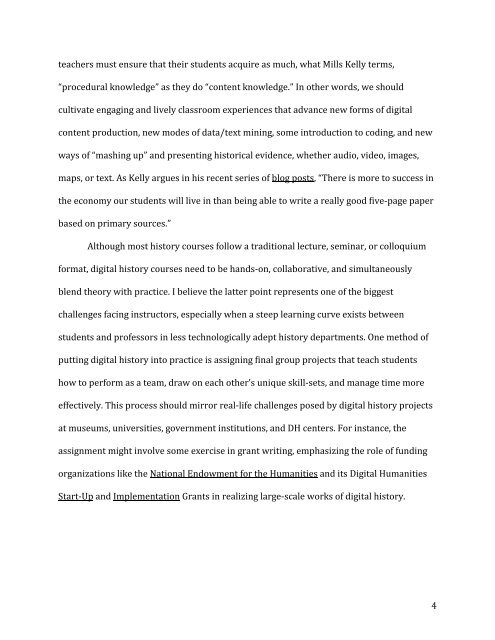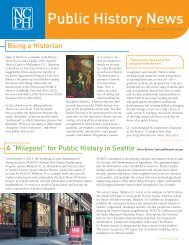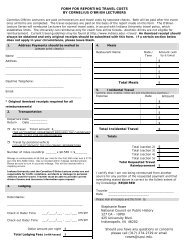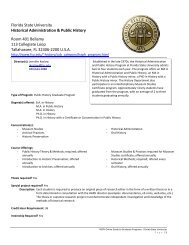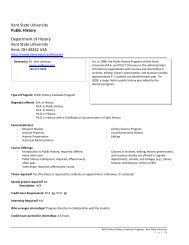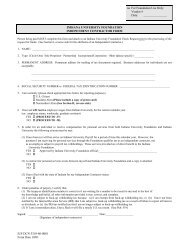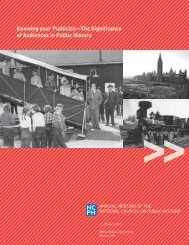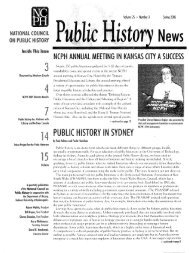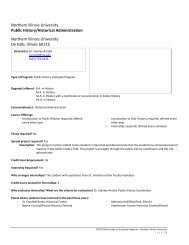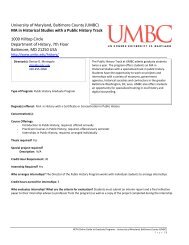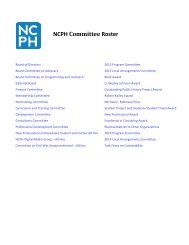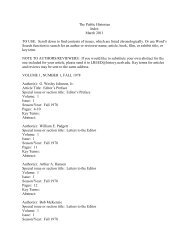Case Statement - National Council on Public History
Case Statement - National Council on Public History
Case Statement - National Council on Public History
Create successful ePaper yourself
Turn your PDF publications into a flip-book with our unique Google optimized e-Paper software.
teachers must ensure that their students acquire as much, what Mills Kelly terms,<br />
“procedural knowledge” as they do “c<strong>on</strong>tent knowledge.” In other words, we should<br />
cultivate engaging and lively classroom experiences that advance new forms of digital<br />
c<strong>on</strong>tent producti<strong>on</strong>, new modes of data/text mining, some introducti<strong>on</strong> to coding, and new<br />
ways of “mashing up” and presenting historical evidence, whether audio, video, images,<br />
maps, or text. As Kelly argues in his recent series of blog posts, “There is more to success in<br />
the ec<strong>on</strong>omy our students will live in than being able to write a really good five-page paper<br />
based <strong>on</strong> primary sources.”<br />
Although most history courses follow a traditi<strong>on</strong>al lecture, seminar, or colloquium<br />
format, digital history courses need to be hands-<strong>on</strong>, collaborative, and simultaneously<br />
blend theory with practice. I believe the latter point represents <strong>on</strong>e of the biggest<br />
challenges facing instructors, especially when a steep learning curve exists between<br />
students and professors in less technologically adept history departments. One method of<br />
putting digital history into practice is assigning final group projects that teach students<br />
how to perform as a team, draw <strong>on</strong> each other’s unique skill-sets, and manage time more<br />
effectively. This process should mirror real-life challenges posed by digital history projects<br />
at museums, universities, government instituti<strong>on</strong>s, and DH centers. For instance, the<br />
assignment might involve some exercise in grant writing, emphasizing the role of funding<br />
organizati<strong>on</strong>s like the <str<strong>on</strong>g>Nati<strong>on</strong>al</str<strong>on</strong>g> Endowment for the Humanities and its Digital Humanities<br />
Start-Up and Implementati<strong>on</strong> Grants in realizing large-scale works of digital history.<br />
4


